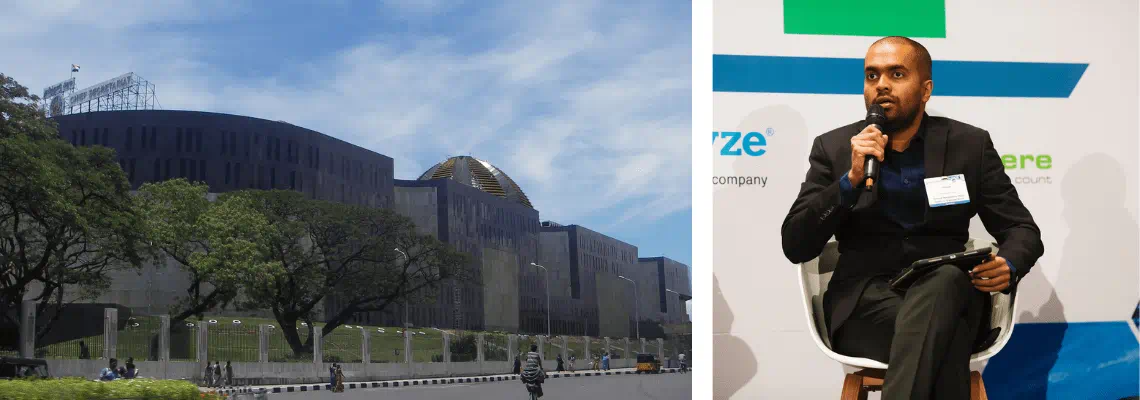Chennai is often cited as an example of rainwater harvesting rolled out at scale. However, it’s not without challenges. We speak to the executive director of the city utility, CMWSSB, to find out more.
Rainwater harvesting and social change
The Indian city of Chennai is frequently cited as an example where rainwater harvesting, at scale, has helped to improve the water supply.
The city faces ongoing water challenges: it receives abundant rainfall during the monsoons but, due to over-abstraction of groundwater, continues to face scarcity.
To provide additional water supply, in 2004 the government mandated rainwater harvesting structures for all new buildings. Despite the ambitions to roll out a city-wide programme, it has not been without problems.
“While all the buildings may have rainwater harvesting structures, not all of them are functional.”
P Akash, executive director of the Chennai Metropolitan Water Supply and Sewerage Board (CMWSSB) says a recent social programme is helping to analyse where the challenges exist.
Speaking to Aquatech Online on the side-lines of the World Water Tech Summit, he said: "Now the focus of our rainwater harvesting plan is on implementation. If a building has been constructed, it not only requires the rainwater harvesting structure but also the necessary permits.
"While all the buildings may have rainwater harvesting structures, not all of them are functional. Many of them may be broken, or the connection may be lost."
A regional fix
Chennai is divided into 200 municipal wards, each facing its own specific set of problems.
"We have a large campaign that puts much impetus on women participation, which we believe is fundamental to bring about any radical or social change," said Akash.
CMWSSB enrolled a thousand women volunteers and, over a week period, covered every building in Chennai to drive awareness.
"In addition, a basic survey was taken to find out what are the sources of water for their household," he added. "And whether they have any complaints regarding water supply or the quality of water."
“We are coming up with smaller capacity, modular sewage treatment plants.”
The resulting data will help the utility to run further analytics and then provide intervention if the rainwater harvesting system faces challenges. The executive director believes that even within Chennai, the required fixes to rainwater harvesting systems will vary region by region.
"Interventions are not applicable across the city - what applies to one ward doesn't apply to another. From our in-depth data analytics, we have come out with specific ward-level action plans that need to be taken so that we can move forward."
Potential for decentralised treatment in Chennai
Akash also references the potential for decentralised systems to augment existing infrastructure servicing the city. There are currently five wastewater treatment plants servicing the 11.5 million population in Chennai.
"CMWSSB is planning to implement decentralised water supply systems," added Akash. "We are coming up with smaller capacity, modular sewage treatment plants, and experimenting with many of the newer technologies which have been recently implemented from across the globe."
The executive director references the $150 million World Bank project, the Chennai City Partnership: Sustainable Urban Services Program, which aims to drive significant improvements in urban services, including water supply and sewerage.
Akash said that work is in place to tender DMAs (district metered areas) to eventually develop "highly decentralised water distribution systems".
"The issue is that people who live in the vicinity of the overhead tanks receive water at almost all times with high pressure. People who live farther away may not get water all the time. Since our metering is poor, the people who get water at high pressure don't have any incentive to save. So since they're getting water all the time at no cost, they're simply consuming. That will deprive the people who are living further away."
The ambition is to ensure that all households are receiving similar pressure by measuring with meters so that "people pay proportionately to the volume of water".
"Similar to the situation with electricity, we are planning to take this to a level in Chennai with smart water meters, so that people will be incentivised to save."
Related content
- A phoenix from the drought? Chennai to reignite desalination
- Meet Asim, Nidhi and their sewer scanning robots







